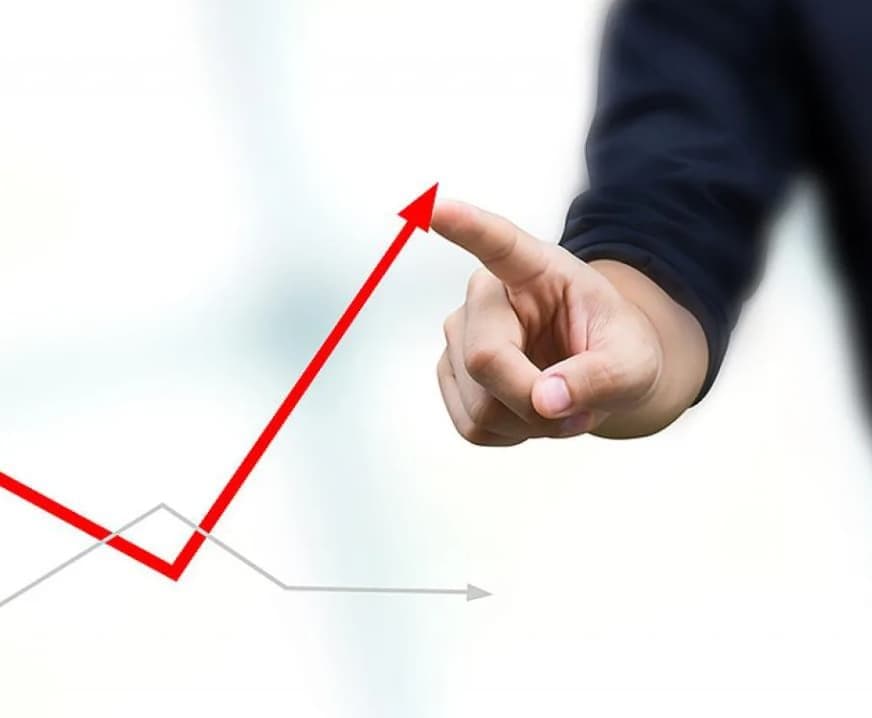Lifestyle
Economic Analyst Warns of Inflation Rise Driven by Government Policies

The annual inflation rate in Montenegro has reached 4.9% as of September 2023, according to data from Monstat. This figure represents a significant increase from 2.6% in March of this year. Economic analyst Mirza Mulešković attributes this rise to government measures that are inherently inflationary, which he argues lead to higher prices for consumers.
Mulešković explained that the increase in inflation is a predictable outcome of the government’s handling of public finances. “Whenever salaries are raised administratively without considering productivity, it results in price increases,” he stated. He pointed out that in 2022, during the initial reforms under the “Europe Now” initiative, inflation rates spiked, with some months seeing annual rates as high as 20%. Currently, he notes, the situation is somewhat different.
While Montenegro has been relatively insulated from the energy crisis that has affected many countries, Mulešković warned that the current inflationary pressures are largely domestic. He highlighted that the average inflation rate across Europe is around 2.2%, indicating that Montenegro’s inflation rate is more than double that of its European counterparts.
Government Strategies and Economic Implications
The Montenegrin government had projected an average inflation rate of 4% for this year as part of its Fiscal Strategy. However, Mulešković argues that the measures implemented, such as administrative salary increases and tax hikes, are contributing to inflation rather than providing relief. He noted, “Since the onset of inflation issues in 2022, we have not seen concrete measures to support the real economy or to enhance Montenegrin products, which is crucial in combating inflation.”
When asked about the government’s allocation of €3.5 million this year to support domestic production, Mulešković expressed concerns over the efficacy of these efforts. He described the situation of Montenegrin dairy farmers, who are reportedly discarding milk due to lack of demand from processing facilities, as indicative of systemic mismanagement. “We remain heavily reliant on imports, and there are no systemic changes that truly assist local producers,” he added.
Mulešković emphasized the need for a shift in focus towards enhancing domestic products, improving technology, expanding capacity, and better marketing. He noted the irony that Montenegrin restaurants often do not serve locally sourced products, such as quality water, highlighting missed opportunities for local businesses.
Future Strategies and Economic Stability
He also called for a rationalization of public administration costs to redirect funds toward enhancing competitiveness. “A return to a real economy, production, and what generates wealth in society is critical,” Mulešković concluded.
Interestingly, Mulešković described inflation as a double-edged sword for public finances. “While it may currently benefit the government’s budget by inflating revenues, it will ultimately become a significant adversary if consumer spending declines,” he warned. He believes that such a decline is inevitable if price increases persist unchecked.
During a recent oversight hearing, Niko Đeljošaj, Montenegro’s Minister of Economic Development, echoed Mulešković’s sentiments regarding the inflationary pressures in the country. He stated that the current inflation is predominantly imported and emphasized the necessity of increased funding for agricultural budgets and competitive support to avoid repeating the same issues year after year. Đeljošaj expressed optimism that timely interventions could yield significant improvements.
The government has also indicated plans to increase funding for competitive support to the agricultural sector to around €30 million next year, with efforts underway to enhance the visibility of local products in collaboration with the Chamber of Commerce. Reducing value-added tax on fruits and vegetables has also been proposed as a measure to alleviate pressures on consumers.
As Montenegro grapples with rising inflation, the effectiveness of government strategies will be pivotal in shaping the economic landscape and supporting local producers in the months ahead.
-

 Health3 months ago
Health3 months agoNeurologist Warns Excessive Use of Supplements Can Harm Brain
-

 Health3 months ago
Health3 months agoFiona Phillips’ Husband Shares Heartfelt Update on Her Alzheimer’s Journey
-

 Science2 months ago
Science2 months agoBrian Cox Addresses Claims of Alien Probe in 3I/ATLAS Discovery
-

 Science2 months ago
Science2 months agoNASA Investigates Unusual Comet 3I/ATLAS; New Findings Emerge
-

 Science1 month ago
Science1 month agoScientists Examine 3I/ATLAS: Alien Artifact or Cosmic Oddity?
-

 Entertainment5 months ago
Entertainment5 months agoKerry Katona Discusses Future Baby Plans and Brian McFadden’s Wedding
-

 Science1 month ago
Science1 month agoNASA Investigates Speedy Object 3I/ATLAS, Sparking Speculation
-

 Entertainment2 months ago
Entertainment2 months agoLewis Cope Addresses Accusations of Dance Training Advantage
-

 Entertainment4 months ago
Entertainment4 months agoEmmerdale Faces Tension as Dylan and April’s Lives Hang in the Balance
-

 World3 months ago
World3 months agoCole Palmer’s Cryptic Message to Kobbie Mainoo Following Loan Talks
-

 Science1 month ago
Science1 month agoNASA Scientists Explore Origins of 3I/ATLAS, a Fast-Moving Visitor
-

 Entertainment4 months ago
Entertainment4 months agoMajor Cast Changes at Coronation Street: Exits and Returns in 2025









